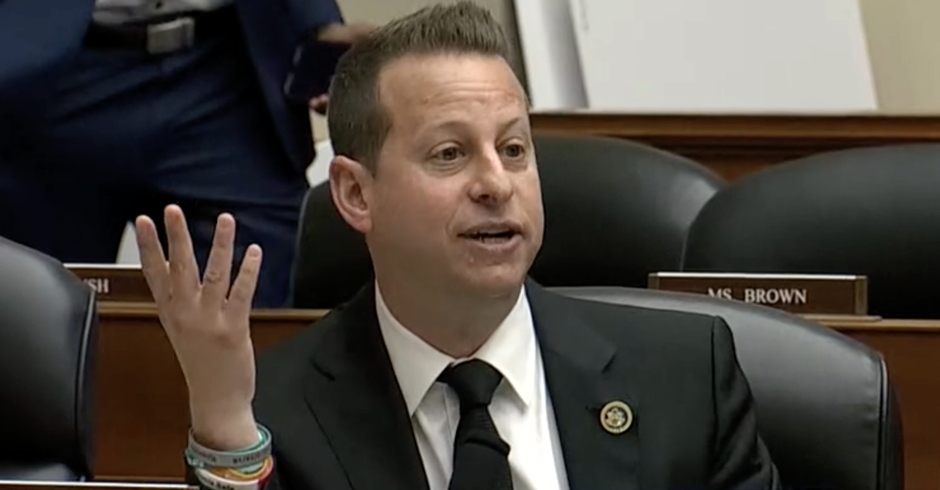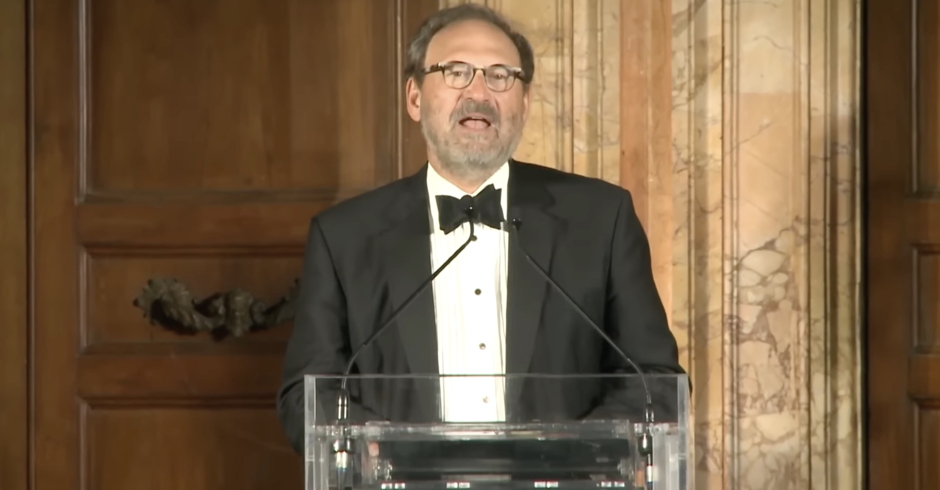Barney Frank Doubles Down, Defends Calling Gay GOP Group ‘Uncle Tom’
Rep. Barney Frank has just released a lengthy, scathing statement defending comments in which he called gay GOP groups, especially the Log Cabin Republicans, “Uncle Tom,” during the Democratic National Convention. The U.S. Congressman from Massachusetts, who is 72 and retiring at the end of his term, told attendees at the most attended LGBT caucus in DNC history, “I’m … inclined to think they’re called the Log Cabin Club because their role model is Uncle Tom,â€
Acknowledging his words last week as “admittedly very harsh criticism,” Frank did not back down, and noted he is “offended” by the Log Cabin Republicans who are “campaigning in the name of LGBT rights.” Rep. Frank also expanded his statement, explained his reasoning, and contrasted the Democrats and Republicans on LGBT issues:
The Democratic President and platform fully embrace all of the legal issues we are seeking to resolve in favor of equality. The Republican candidate for President and the platform on which he runs vehemently oppose us in all cases.
Congressman Frank noted, of the Log Cabin Republicans:
On the face of this, for a group of largely LGBT people to work for our strong opponent against our greatest ally is a betrayal of any supposed commitment to our legal equality.
Below, in full, is Congressman Frank’s statement:
I am not surprised that members of the Log Cabin Republicans are offended by my comparing them to Uncle Tom. They are no more offended than I am by their campaigning in the name of LGBT rights to elect the candidate and party who diametrically oppose our rights against a President who has forcefully and effectively supported our rights.
That is the first reason for my admittedly very harsh criticism. This election is clearly one in which there is an extremely stark contrast between the two parties on LGBT rights. The Democratic President and platform fully embrace all of the legal issues we are seeking to resolve in favor of equality. The Republican candidate for President and the platform on which he runs vehemently oppose us in all cases. On the face of this, for a group of largely LGBT people to work for our strong opponent against our greatest ally is a betrayal of any supposed commitment to our legal equality.
But my use of “Uncle Tom†was based not simply on this awful fact that they have chosen to be actively on the wrong side of an election that will have an enormous impact on our right to equality, both in fact and in the public perception of the popularity of that cause. If the Log Cabin Republicans – or their even more outlandish cousins, the oddly-named GOProud –were honestly to acknowledge that they let their own economic interests, or their opposition to strong environmental policies, or their belief that we need to be spending far more on the military or some other reason ahead of any commitment to LGBT equality, and on that ground have decided to prefer the anti-LGBT candidate to the supportive one, I would disagree with the values expressed, but would have no complaint about their logic.
The damaging aspect of the Log Cabin argument, to repeat the most important point, is that they may mislead people who do not share their view that tax cuts for the wealthy are more important than LGBT rights into thinking that they are somehow helping the latter by supporting Mitt Romney and his Rick Santorum platform.
It is a good thing for Republicans to try to influence other Republicans to be supportive of LGBT rights. The problem is when they pretend to be successful when they haven’t been, and urge people to join them in rewarding the Republicans when they have in fact continued their anti-LGBT stance. I have been hearing the Log Cabin Republicans proclaim for years that they were improving the view of that party towards our legal equality. In fact, over the past 20 years, things have gotten worse, not better. Most recently, on DOMA, when the House Republicans offered an amendment to reaffirm it, they voted 98% in favor of it, while Democrats voted more than 90% against the amendment. And it is not surprising that they have not been successful. Giving strong political support to people who are maintaining their anti-LGBT stance is hardly an effective strategy for getting them to change it.
The argument Mr. Cooper and the others in the Log Cabin Republicans have put forward in their defense is that they have succeeded in getting the Republicans to reduce the extent to which they denounce us, and, in Mr. Cooper’s phrase, the fact that Paul Ryan is “willing to engage†with gay Republicans. That is where Uncle Tom comes to mind. They are urging people to vote for the anti-LGBT candidate over the most supportive LGBT candidate and platform imaginable because the “antis†are calling us fewer names and are willing to talk to some of us. It is this willingness to acquiesce in a subordinate status as long as the masters are kinder in tone, although in substance, that emulates Uncle Tom.
I note Mr. Cooper points to a couple of Republicans as reasons for supporting that party and helping advance its anti-LGBT crusade. As to Representative Ryan, in addition to his “willingness to engage with them,†Mr. Cooper cites his vote for the Employment Nondiscrimination Act. In fact, Paul Ryan has an overwhelmingly anti-LGBT voting record, including opposition to the repeal of “Don’t Ask, Don’t Tell,†and a transgender-inclusive hate crimes bill, and support for a constitutional amendment not just to ban future same-sex marriages but to dissolve existing ones. It is true that on one occasion he voted for ENDA, but he did so only after voting minutes before for a Republican procedural maneuver – a motion to recommit the bill – which falsely invoked the specter that passage of ENDA would compel same-sex marriage and which, if it had passed, would have killed the bill. In other words, Paul Ryan has always voted against us, except for one occasion when he voted for us only after first trying to make the bill he theoretically supported inoperative.
Mr. Cooper also cites Susan Collins. She was very good on the question of “Don’t Ask, Don’t Tell.â€Â But the argument that supporting Susan Collins advances LGBT rights ignores the fact that Senator Collins has twice defeated Democrats who were far more supportive of our issues than she was. And an example of that is the current referendum in the state of Maine on marriage. We have a very good chance of winning in Maine, and winning a referendum is important both for the substantive rights of the people in Maine and for the political point that it demonstrates. Unlike the two Democratic Representatives from Maine, Chellie Pingree and Mike Michaud, Susan Collins has been stubbornly silent. That is, in a state where marriage is on the ballot, and in a year in which she is not up for reelection, Senator Collins is withholding her support from us, unlike any Democrat who would have run against her. And remember, these are the best that the Log Cabin Republicans can cite.
Some have complained that in comparing the Log Cabin Republicans to Uncle Tom, I was ignoring the fact that they are nice. I accept the fact that many of them are nice – so was Uncle Tom – but in both cases, they’ve been nice to the wrong people.
Veteran journalist Michelangelo Signorile interviewed Rep. Frank last week. You can read excerpts and listen to the full interview at The Huffington Post.

Enjoy this piece?
… then let us make a small request. The New Civil Rights Movement depends on readers like you to meet our ongoing expenses and continue producing quality progressive journalism. Three Silicon Valley giants consume 70 percent of all online advertising dollars, so we need your help to continue doing what we do.
NCRM is independent. You won’t find mainstream media bias here. From unflinching coverage of religious extremism, to spotlighting efforts to roll back our rights, NCRM continues to speak truth to power. America needs independent voices like NCRM to be sure no one is forgotten.
Every reader contribution, whatever the amount, makes a tremendous difference. Help ensure NCRM remains independent long into the future. Support progressive journalism with a one-time contribution to NCRM, or click here to become a subscriber. Thank you. Click here to donate by check.
 |






















